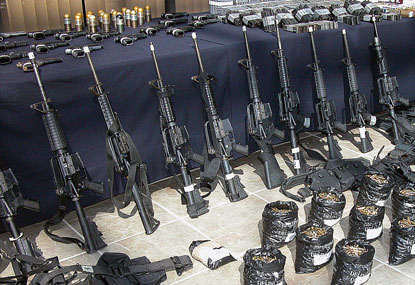 The future of democracy is being threatened and will be determined by our response to the problem of ever increasing wealth inequality. As a very few generate exceptional profits from capital investments, the rest of us recede ever further into relative poverty. Democracy and the open society are under serious threat from snowballing capitalism, which buys elections and access to the political system at prices the average citizen cannot compete with. It is not science fiction to suggest that our children may be slaves in all but name to uncaring oligarchs in some dystopian future.
The future of democracy is being threatened and will be determined by our response to the problem of ever increasing wealth inequality. As a very few generate exceptional profits from capital investments, the rest of us recede ever further into relative poverty. Democracy and the open society are under serious threat from snowballing capitalism, which buys elections and access to the political system at prices the average citizen cannot compete with. It is not science fiction to suggest that our children may be slaves in all but name to uncaring oligarchs in some dystopian future.
One of the problems reformers run into is the opaqueness of the financial world. Not only are the systems that govern financial transactions intentionally byzantine and unnecessarily complex, financial actors working within the system do everything they can to obscure who owns what assets, who is paying how much to whom, and by what pathways money tends to flow. Everyone who has seen a movie is familiar with the idea of “shell corporations” and “offshore accounts” as a way of hiding financial assets for nefarious purposes, but few of us are aware of how pervasive these and similar practices are in reality.
If we seek to put an end to ever increasing economic and political inequality and prevent future economic crises similar to or worse than our recent recession, then economic transparency is of the utmost importance. As Thomas Piketty says in his landmark (but far from perfect) Capital in the Twenty-First Century, “there should be clarity about who owns what assets around the world.” (page 518)
Piketty argues that the debate around growing inequality and the management of global capitalism is operating in the dark. We have no reliable data about who owns what and how much money they are making. A significant portion of the world’s wealth seems to be squirreled away into secret black market accounts. Without accurate data, we are flying blind and suggesting solutions to problems we don’t fully understand.
It is in this light that I see the actions of Treasurer Gina Raimondo as contrary to the public good. Raimondo, far from fighting for the rights and economic prosperity of all Rhode Islanders, seems more interested in veiling herself and her allies from financial scrutiny. For instance, Raimondo’s use of a blind trust, to hide her investments and income from scrutiny during her gubernatorial campaign, flaunts economic clarity and openness.
More problematic is the outrageous letter Raimondo sent to the RI Attorney General’s office, in which the treasurer maintains that revealing the amount of money Rhode Island pays to its hedge fund managers might put hedge fund managers at risk of kidnapping! From David Sirota at the International Business Times:
Citing the case of Eddie Lampert, an investor who was abducted in 2003 by ransom-seeking kidnappers, the letter to Assistant Rhode Island Attorney General Michael Field from Raimondo’s office further argued that disclosing too much information about financial fees and compensation could endanger the lives of hedge fund managers.
The amount of money people like Treasurer Raimondo make from their jobs as elected officials pales to insignificance when compared to the amount of money they generate from their capital investments. If people were given a true picture of how wealth is distributed, there would be outrage. This is why financial transactions and the ownership of assets is hidden, and why a new era of financial transparency is mandatory if we wish to preserve our democracy.
Otherwise, the only viable financial plan for those wishing to avoid economic serfdom may be the realization of Treasurer Raimondo’s worst fears: the kidnapping and ransoming of the 1%.


